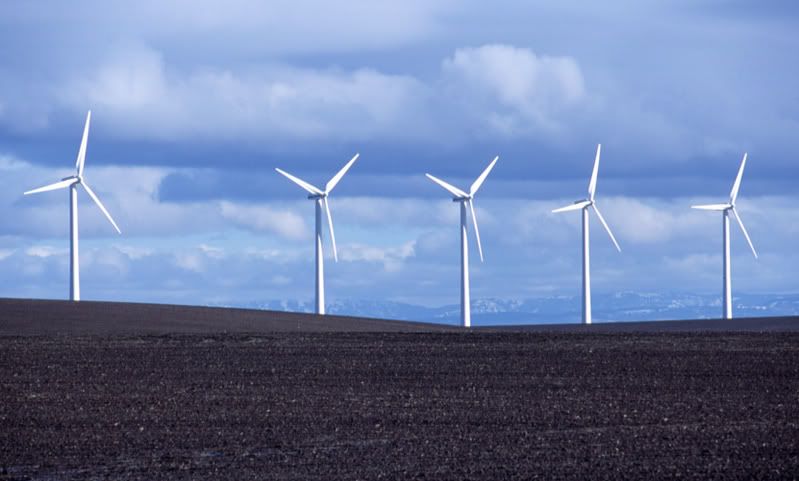Energy bill would boost South's economy, advocates say
 Yesterday the U.S. House of Representatives passed the Energy Independence and Security Act (H.R. 6), a wide-ranging measure that promotes renewable energy sources, improves automotive fuel economy and boosts production of homegrown biofuels. According to the Southern Alliance for Clean Energy, the measure would also benefit the South's economy.
Yesterday the U.S. House of Representatives passed the Energy Independence and Security Act (H.R. 6), a wide-ranging measure that promotes renewable energy sources, improves automotive fuel economy and boosts production of homegrown biofuels. According to the Southern Alliance for Clean Energy, the measure would also benefit the South's economy.
"A very important measure in this bill is the 15 percent renewable electricity standard for utilities that will dramatically increase renewable sources of electricity," says SACE Executive Director Stephen Smith. "We are pleased to see that the House has rejected the false assumptions that the Southeast does not have renewable energy potential, and the Southern Alliance for Clean Energy's analysis shows that this standard will significantly boost clean energy production in our region."
The Southeast has abundant renewable energy potential, but the region has lacked economic incentives to encourage renewable energy production and stimulate job growth, Smith says. This measure provides those incentives.
The legislation offers a $21 billion tax package providing renewable energy incentives that it pays for by repealing oil and gas industry tax breaks and extending production tax credits for cellulosic fuels and renewable energy sources including wind and solar power. It also requires cars and light trucks sold in the U.S. to achieve a minimum fleetwide average of 35 miles per gallon by 2020 -- the first congressionally mandated increase in corporate average fuel economy standards since 1975.
In addition, the bill imposes a five-fold increase in the biofuels mandate, requiring that 36 billion gallons of ethanol and other biofuels be blended with gasoline by 2022. That measure is controversial among some environmental advocates such as the folks at the Energy Justice Network, who warn that such a dramatic expansion in biofuels production and use will prove catastrophic for food prices, agriculture, water and soil depletion, food security, and deforestation, and would even worsen air quality and global warming. For their take on the problems with ethanol, click here.
The bill has moved to the Senate, where Republicans today blocked a vote on the measure, forcing negotiations that will likely result in a scaled-down version. Senate Minority Leader Mitch McConnell (R-Ky.) criticized the House-approved version as "a massive tax hike, and a utility rate increase for consumers across the southeast." Meanwhile, President Bush has threatened to veto anything resembling the House version.
For more details on the legislation, visit the Union of Concerned Scientists' Energy Bill Resource Center.
Tags
Sue Sturgis
Sue is the former editorial director of Facing South and the Institute for Southern Studies.
